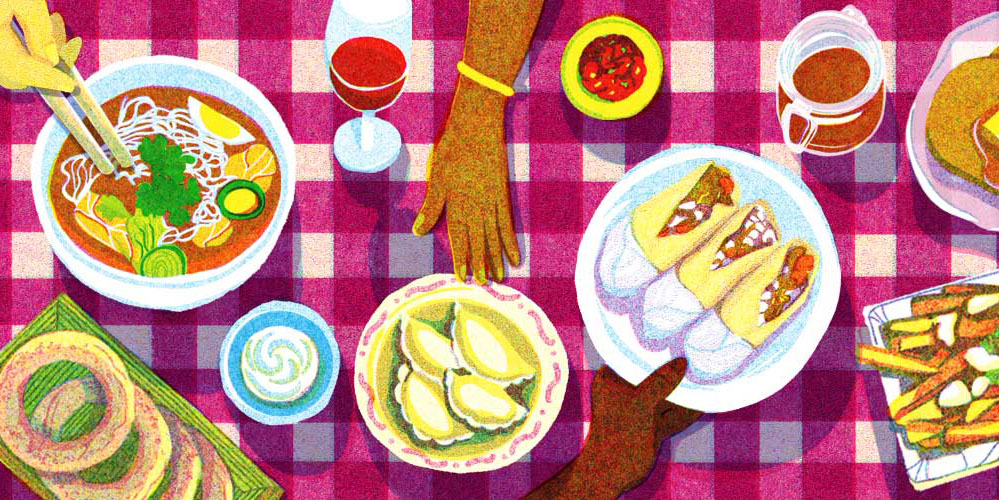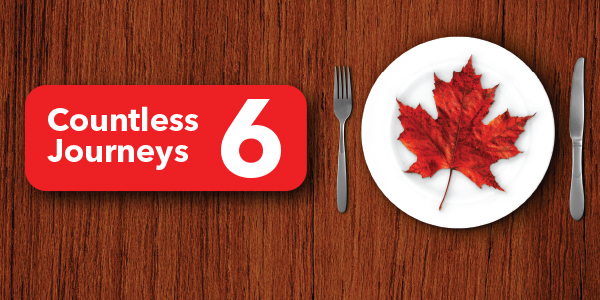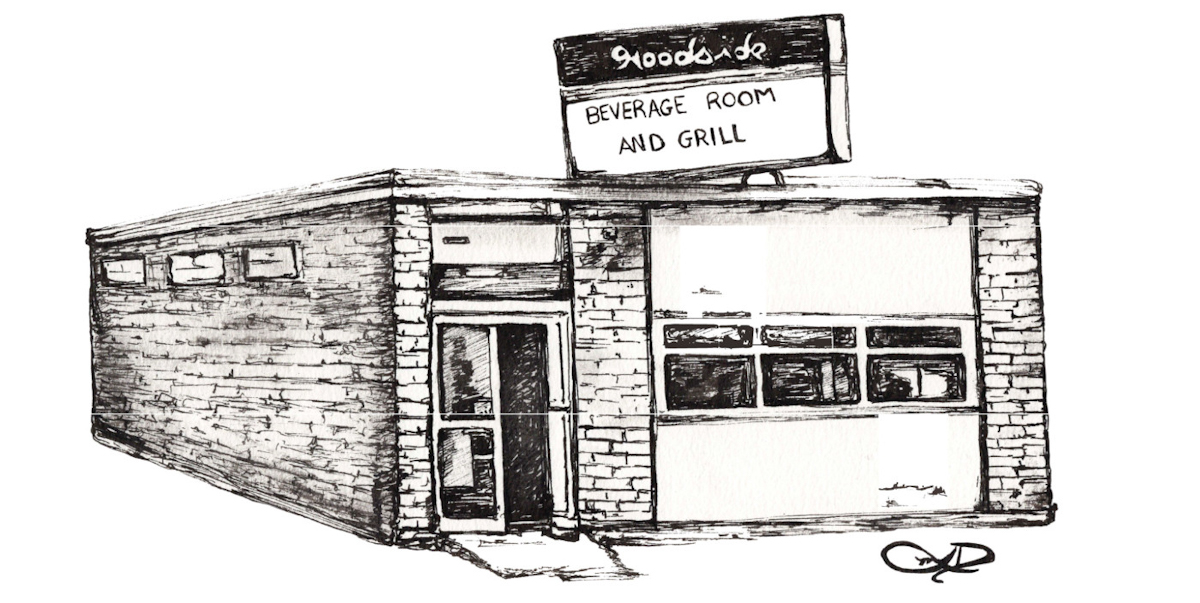
Dartmouth’s Woodside Tavern is a simple building in the parking lot of a shopping plaza—a small island of brick in a sea of asphalt and parked cars. With dartboards, pool tables, and long tables lined with rows of wooden chairs, it claims to be “Dartmouth’s oldest bar.”
Purchased in 2017 by Hari and Junu Joshi Barakoti, a Nepalese couple who’d been living and working in Newfoundland, the bar has undergone big changes and somehow also remained much the same.
“The colours were different. There was no heat pump…and it was kind of dark,” says Hari, explaining the few aesthetic changes since they took over ownership. The pool tables and VLTs are relocated at the back side to open spaces for events and music. The décor of the Woodside is still not going to make people feel underdressed. But the atmosphere – and who it serves – is quite different.
Now, the tavern serves lunch and dinner, offers a family-friendly atmosphere, and attracts customers by bringing in bands every Friday and Saturday night.
An important music venue
The musical styles range from folk to electronic to rock to various kinds of heavy metal. “Playing at the Woodside feels almost like playing at your friend’s house party. It’s friendly and safe, and it’s a casual, low-stakes kind of vibe,” says Graeme Hopkins, guitarist with Dartmouth-based doom metal band Skullocybin. The front entrance is wallpapered with posters from past gigs, attesting to the number and variety of acts the bar has hosted, as well as the importance of the venue to the local music scene.
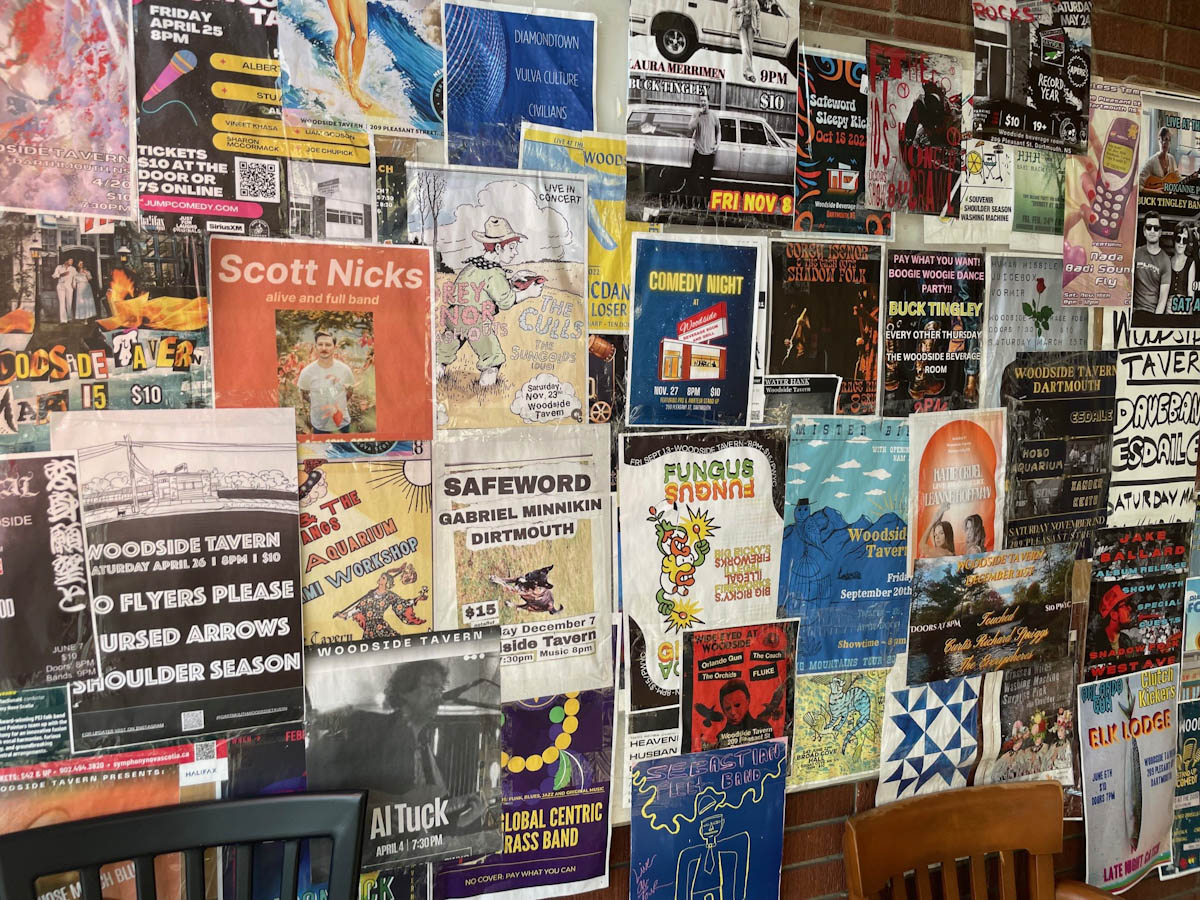
An expanded menu
Another thing that has changed is the menu. “When we bought this place, they had very local food — salt cod, meatloaf, fish and chips, and cheeseburgers.” Although many of those traditional bar food staples remain, recently, they have also introduced a signature menu which features Nepalese momo (dumplings), and a couple of fusion curry dishes.
Offering Nepalese food wasn’t obvious at first. Hari notes that in their early days, there weren’t nearly as many immigrants from Asia in the city. When he went to the mall, “people looked at me like, ‘Where are you from?’ That kind of attitude, that kind of look.” But the increase in immigrants from Asian in the intervening years emboldened him to start offering dishes from home.
And yet, when asked who tends to order the Nepalese food off the menu, Hari says, “Most of them are local people”. Tasting the momo shows why it hasn’t been difficult to find people who crave them.
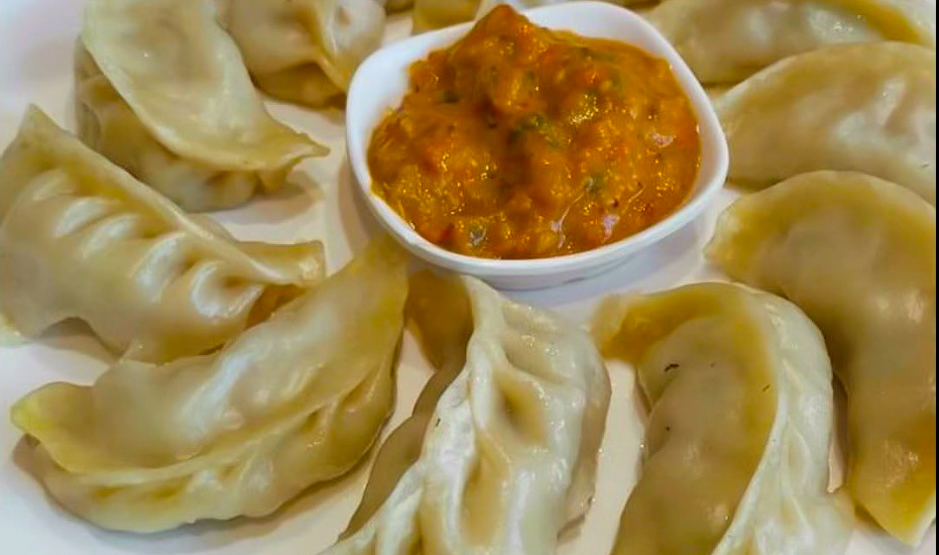
Risk, ambition, and hard work
Hari and Junu moved to Halifax from Newfoundland, looking for a slightly bigger city. They’d started discussions on purchasing the Woodside in the weeks leading up to their arrival. They cut the cheque to buy the business on the very day they arrived. Junu manages the operation, which employs five staff members, during the day. Hari, who works for the federal government, runs the bar evenings and weekends and is also Vice-President of the Nepalese Society of Nova Scotia. As if that weren’t enough on their plate, the couple would like to open a restaurant serving Nepalese food.
If you’re interested in learning more about the how immigration has shaped Canadian food, don’t miss our special exhibition, eat make share: a taste of immigration, at the Museum for a limited time.
